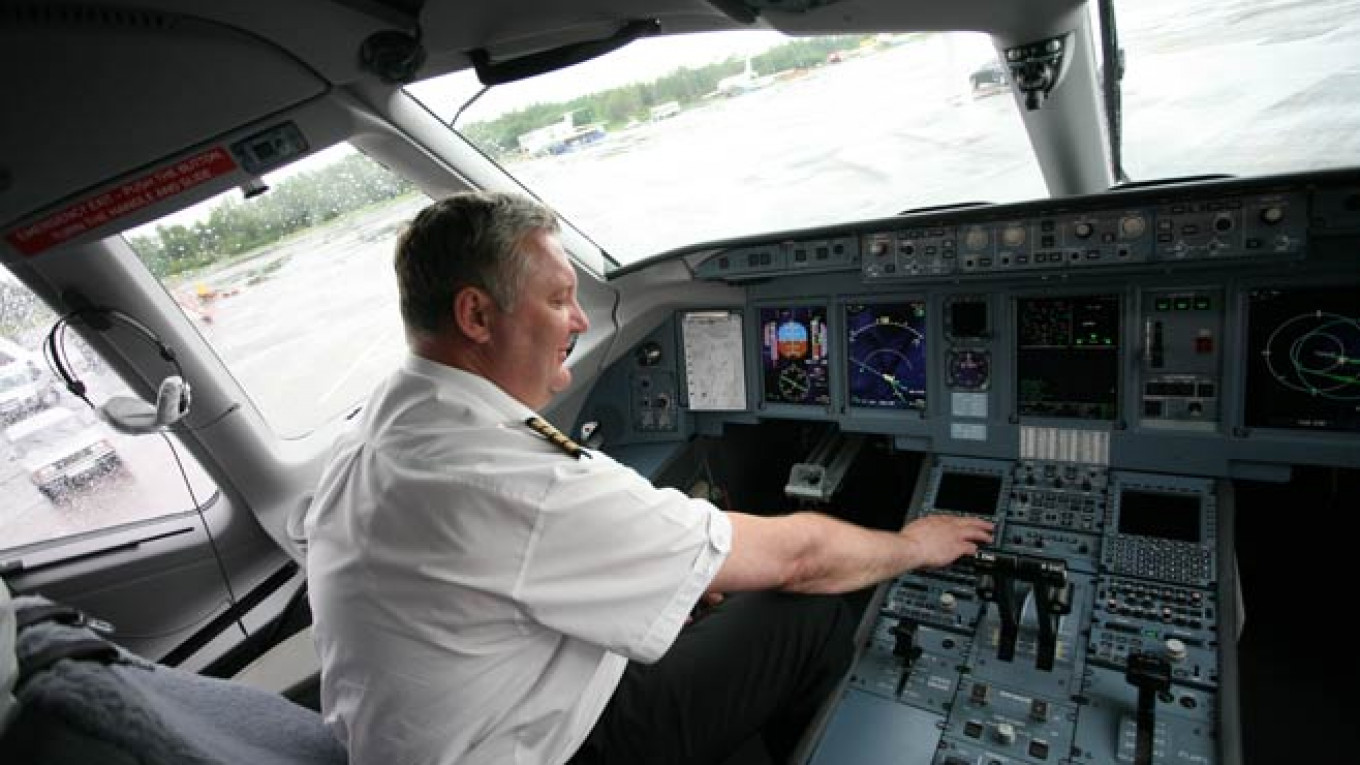President Vladimir Putin on Monday signed into law a controversial bill, allowing Russian airlines to hire foreign pilots.
The bill, initiated by Russia's flag carrier Aeroflot, had been opposed by professional labor unions and three State Duma factions.
The new law allows Russian airlines to collectively hire up to 200 foreign pilots per year over the next five years to compensate for the domestic shortage of skilled personnel, mainly captains.
A source in Aeroflot earlier told Kommersant that Russia was short of about 1,000 head pilots, adding that the problem was dire for the airline itself and that it was ready to consume the whole quota. Another major airline, Transaero, also confirmed that it would start hiring foreign pilots if the law permitted it to do so.
The State Duma passed the bill in April, with all of United Russia lawmakers voting for the bill and most deputies representing minority factions — A Just Russia, the Communist Party and LDPR — voted against it.
Most professional pilot associations were against the bill, labeling it a product of foreign agencies' influence aimed at breaching national security.
Prior to voting on the bill, Russia's Cockpit Personnel Association, or CPA, sent a letter to Putin warning him of the dangers of hiring foreign pilots and asking to hold more consultations with industry representatives.
"The law saves money for the airlines. Instead of having to invest in training local personnel, they will just hire foreigners," said CPA vice president Villy Vechirko.
At the same time there are currently about 500 pilots across the country who cannot find a job, he said.
CPA executive was also skeptical that foreign pilots coming to Russian airlines would be highly professional.
"Western airlines pay better than the Russian ones do and offer more social benefits so the best pilots will stay employed where they are. Those willing to move would be the ones who had not been accepted elsewhere," Vechirko said.
This is not necessarily the case, said Alexei Sinitsky, chief editor of Aviatransportnoye Obozreniye, a monthly aviation magazine.
"On the contrary, when the market was closed it was easier for unqualified personnel to find a way into the cockpit because the airlines simply had no choice," Sinitsky said.
He also said that airlines, especially those who may hire foreign pilots, would take extra care that unprofessional pilots did not fly their jets because the risks involved would be overwhelming.
In any case, the quota for foreign pilots is not high enough to have a significant impact on the labor market, he said.
"If there were no quotas and the market became fully open, then we would probably see a difference. But even then it would not mean that Russia will be flooded with foreign pilots as there is a worldwide shortage of skilled air personnel," Sinitsky said.
Contact the author at [email protected]
A Message from The Moscow Times:
Dear readers,
We are facing unprecedented challenges. Russia's Prosecutor General's Office has designated The Moscow Times as an "undesirable" organization, criminalizing our work and putting our staff at risk of prosecution. This follows our earlier unjust labeling as a "foreign agent."
These actions are direct attempts to silence independent journalism in Russia. The authorities claim our work "discredits the decisions of the Russian leadership." We see things differently: we strive to provide accurate, unbiased reporting on Russia.
We, the journalists of The Moscow Times, refuse to be silenced. But to continue our work, we need your help.
Your support, no matter how small, makes a world of difference. If you can, please support us monthly starting from just $2. It's quick to set up, and every contribution makes a significant impact.
By supporting The Moscow Times, you're defending open, independent journalism in the face of repression. Thank you for standing with us.
Remind me later.






